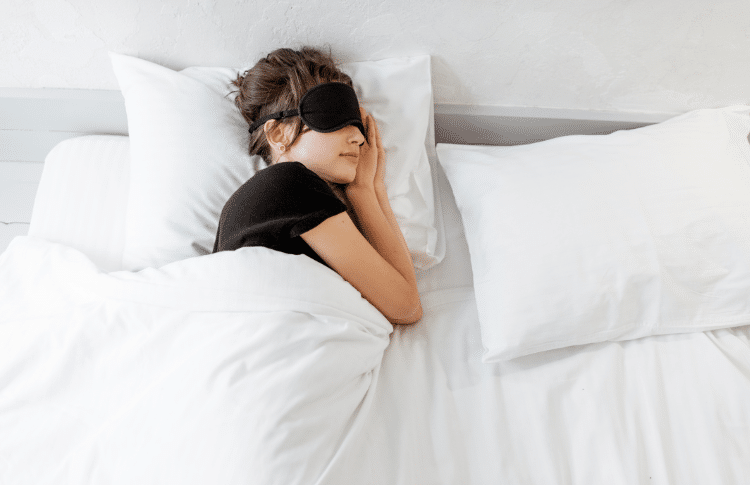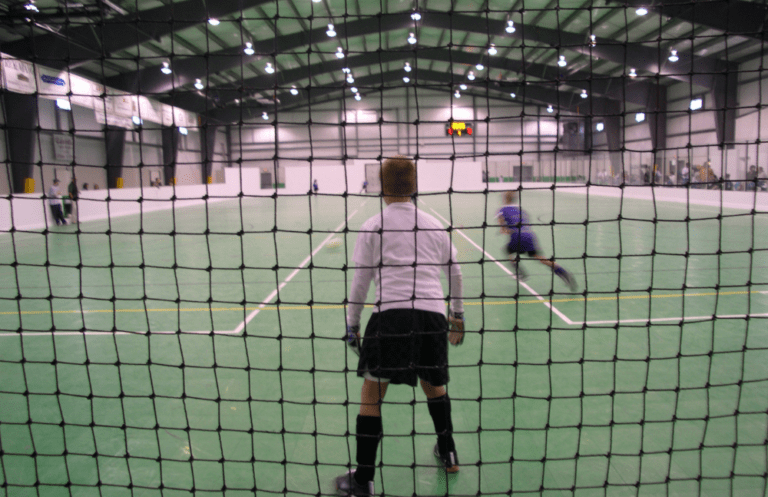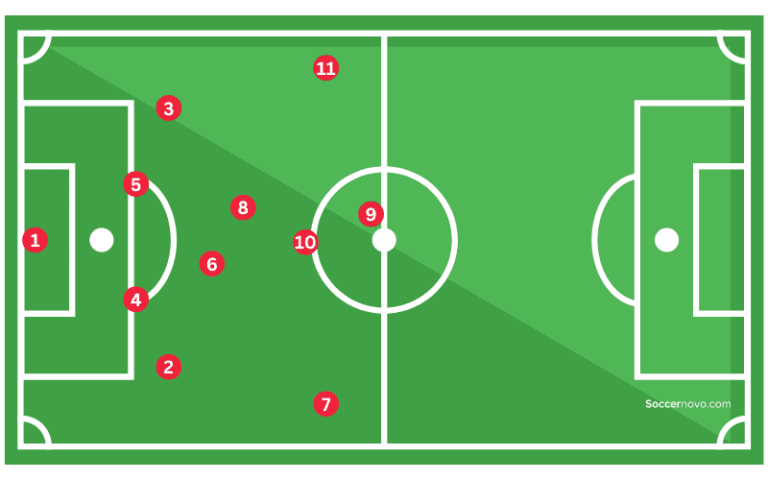How Much Sleep Do Soccer Players Need?

How much sleep do soccer players need? 7-9 is typically the recommended amount of sleep for us. But, do you need more or less?
If you’re a soccer player, you know how important it is to be at the top of your game. You’ve probably spent countless hours on the field, perfecting your skills and pushing your body to its limits. But have you ever stopped to think about how much sleep you’re getting? Sleep is an essential part of athletic performance, and it’s especially important for soccer players.

So, how much sleep do soccer players need? The answer is not one-size-fits-all. Let me explain…
The Importance of Sleep for Soccer Players
Sleep is essential for your body to recover and repair itself after a tough game or practice. It’s during sleep that your body produces growth hormone, which helps repair and rebuild muscle tissue.
Without enough sleep, your body won’t have the time it needs to recover properly, which can lead to injuries and decreased performance on the field.
In addition to physical recovery, sleep is also crucial for mental recovery. Lack of sleep can lead to decreased reaction times, impaired decision-making, and poor concentration. In fact, studies have shown that even one night of sleep deprivation can decrease reaction times by up to 300%!
I’ve seen this first-hand with my son! He stayed up late during a sleepover and probably got around 4 hours of sleep. Well, the next day he played a game where he could barely function. I mean that he was 5 steps slower to react than he usually is and he was looking forward to getting subbed out (which is not like him). Luckily, he was very upset at himself so I think he can use it as a learning lesson.
So how much sleep do soccer players need? While everyone’s sleep needs are different, most experts recommend:
- Preschool (3–5 years): 10–13 hours with naps
- School-age (6–13 years): 9–12 hours
- Teens (14–17 years): 8–10 hours
- Adults (older than 18): 7-9 hours
However, athletes may need even more sleep to support their increased physical demands. Some studies suggest that soccer players may need an extra hour or two of sleep per night to support optimal performance.
To ensure that you’re getting enough sleep, make it a priority in your daily routine. Stick to a consistent sleep schedule, avoid caffeine and sugary drinks, and create a sleep-conducive environment in your bedroom.
This should be part of a player’s short priority list!
Understanding the Sleep Needs of Soccer Players
The amount of sleep you need depends on a couple of factors such as your age and training intensity.
Age Factor
Age plays a significant role in determining how much sleep you need. Adolescents require more sleep than adults due to their higher physiological need for sleep. Therefore, if you are a youth soccer player, you need to ensure that you are getting enough sleep to support your growth and development.
Training Intensity
If you have a high-intensity training session, you may need more sleep to recover adequately.
According to a study published in the Journal of Sports Sciences, soccer players who underwent high-intensity training required more sleep to recover than those who underwent low-intensity training.
Therefore, if you have a high-intensity training session, you should prioritize getting enough sleep to allow your body to recover fully.
Essentially, you are using sleep to recharge your batteries that were depleted from the previous training session.
Impact of Sleep Deprivation on Soccer Performance
As a human, getting enough sleep is crucial for your overall health and well-being, but it’s especially important for athletes like you who need to perform at their best.
Lack of sleep can make your body function slower and your concentration plummets.
Additionally, you tend to become a grumpier and more agitated person when you don’t get a quality night of sleep.
It’s important to prioritize sleep as part of your overall training regimen. Make sure you’re getting enough sleep each night and that the quality of your sleep is good.
If you’re having trouble sleeping, try incorporating relaxation techniques like meditation or deep breathing exercises into your routine.
Or, try following some of the strategies in this next section.
Strategies for Better Sleep as a Soccer Player
Establishing a Sleep Routine
Establishing a sleep routine can help regulate your body’s internal clock and improve the quality of your sleep.
Try to go to bed and wake up at the same time every day, even on weekends. This can help your body get into a rhythm and make it easier to fall asleep at night.
Stop Screen Time
Electronic devices like iPhones and iPads emit blue light that can interfere with your body’s natural sleep-wake cycle.
Avoid using electronic devices at least 30 minutes before bedtime.
Instead, try reading a book, taking a warm bath, or practicing relaxation techniques to help you wind down before bed.
This really does help your mind shut down naturally.
Nutrition and Sleep
What you eat and drink can also affect your sleep quality.
Avoid consuming caffeine and sugary foods (the Swedish Fish can wait until tomorrow) close to bedtime, as they can interfere with your sleep.
Instead, try eating foods that promote sleep, such as warm milk, bananas, and whole-grain crackers.
Or, make a rule that you won’t eat after a certain time. Instead, just grab a glass of water or milk.
Recovery Techniques
Recovery techniques, such as stretching, foam rolling, and massage, can help relax your muscles and promote better sleep.
These techniques can also help reduce muscle soreness and improve your overall physical performance. Try incorporating recovery techniques into your post-game or post-training routine to help you relax and sleep better.
Final Thoughts
I hope by now you know how important your sleep is! Very important.
As a soccer player, you might have to make sacrifices in order to get a proper night of sleep. Somethings might include:
- Getting your homework done right after school
- Saving the rest of the movie for the next day
- Leaving a party early
- Saying “no” to a sleepover
Most situations are worth the sacrifice.
It’s also essential that you listen to your body. If you feel very lethargic, that might be your body telling your mind to slow down.
At the end of the day, get enough sleep so your batteries are charged for the next day. You’ll be able to perform at your best physically and mentally.
Frequently Asked Questions
What is the recommended amount of sleep for youth soccer players?
According to sleep experts, youth soccer players should be getting between 8 and 10 hours of sleep every night. School-age children need at least 9-12 hours. Getting enough sleep is crucial for athletes because it helps them to recover from training and games, and it also helps to reduce the risk of injury.
How does sleep affect a soccer player’s performance?
Sleep has a significant impact on a soccer player’s performance. Proper sleep helps to improve reaction times, decision-making, and accuracy. When you are sleep-deprived, your reaction times slow down, and your decision-making skills are impaired. This can lead to mistakes on the field, which can cost your team the game.
What are some tips for soccer players to get better sleep?
There are several things that soccer players can do to get better sleep. First, it’s important to establish a consistent sleep schedule and stick to it as much as possible. Second, avoid caffeine and sugary snacks before bedtime. Third, create a relaxing bedtime routine, such as taking a warm bath or reading a book.

Written By: Beau Bridges
Beau is the founder of SoccerNovo, dedicated to helping players and parents navigate the youth soccer landscape. As a former youth coach and soccer parent, he shares insights on player development, recruiting, and the ever-evolving soccer scene in the U.S.
Let’s connect





